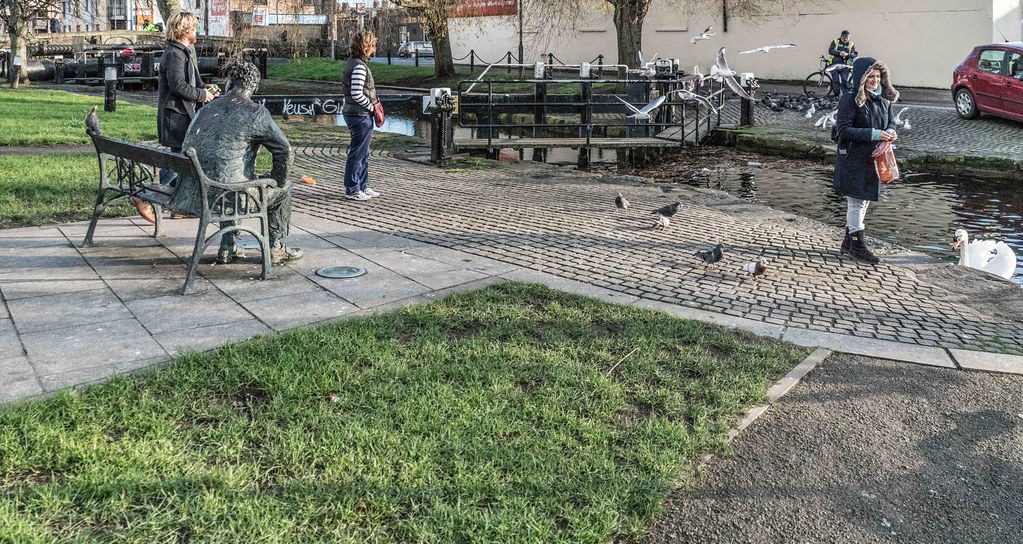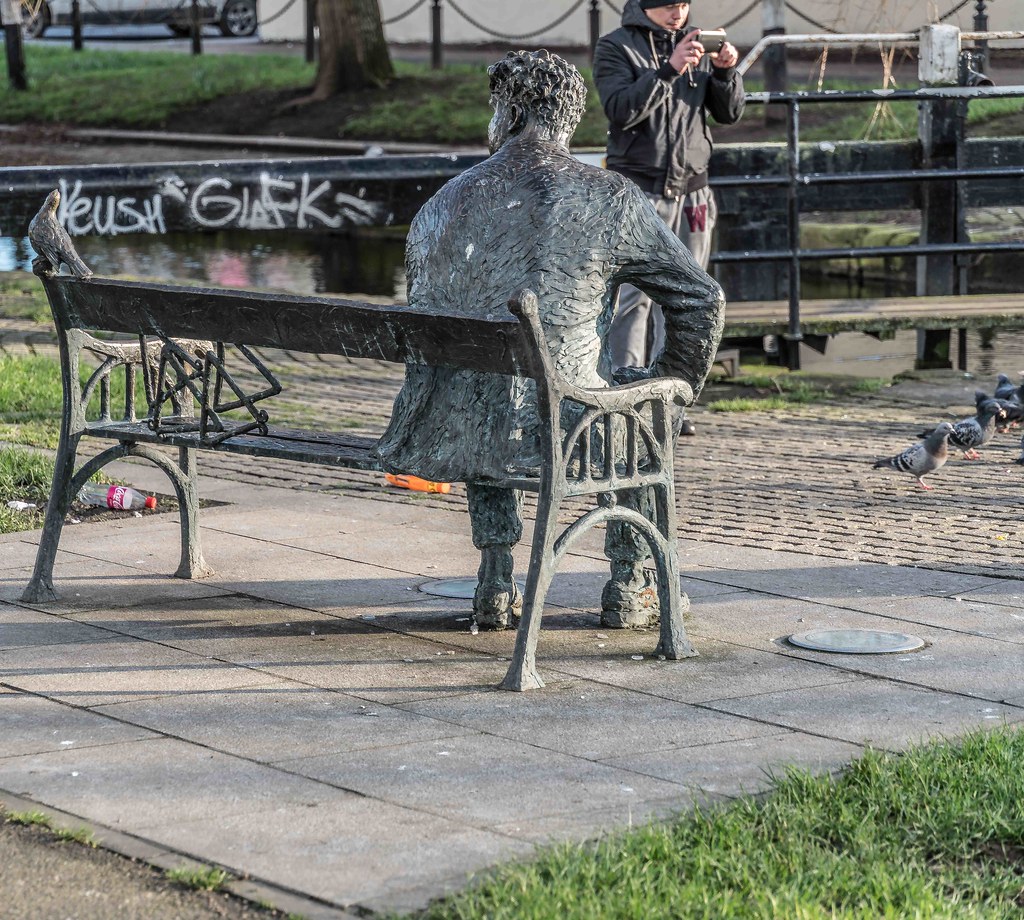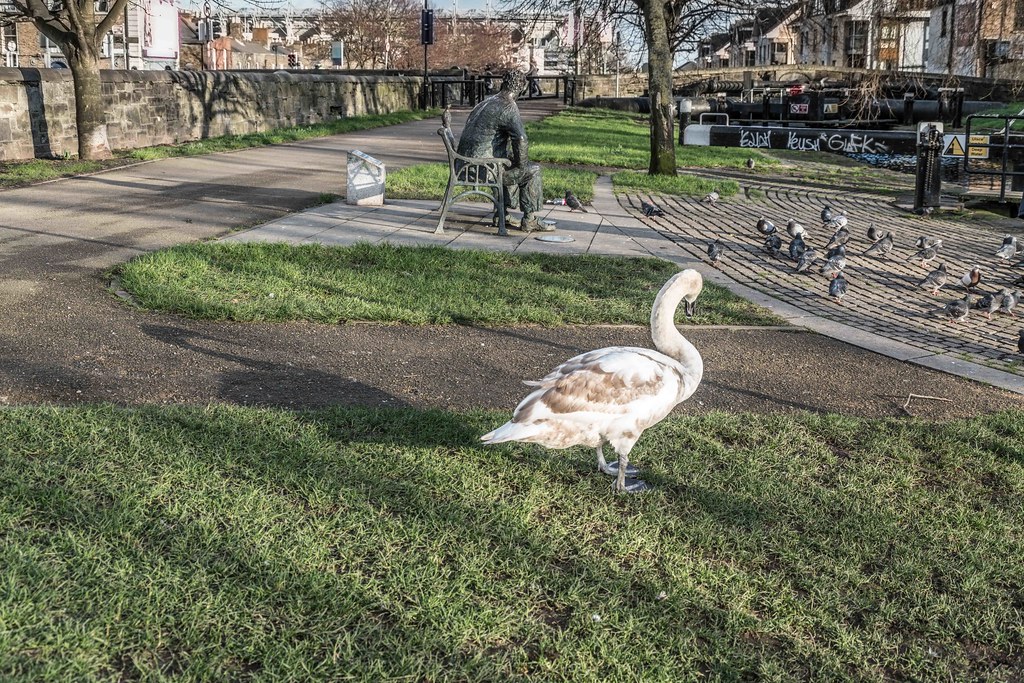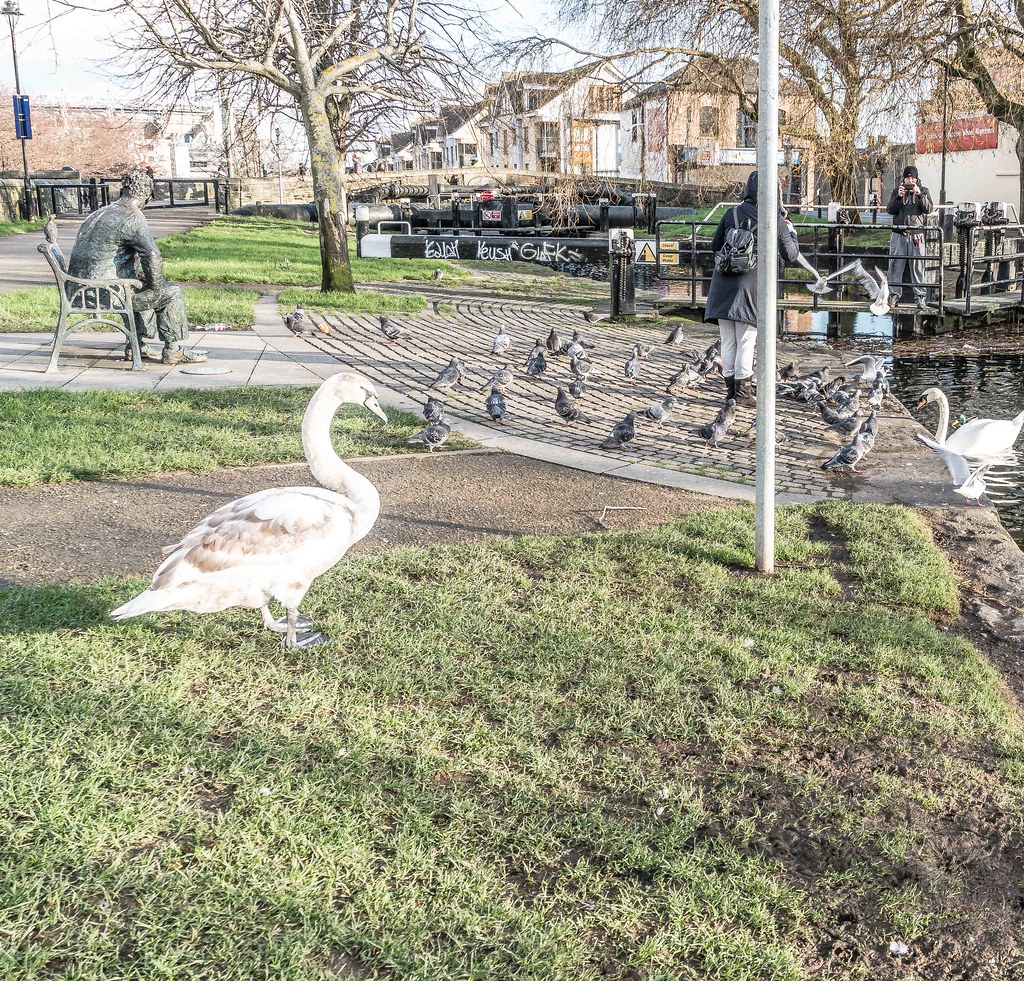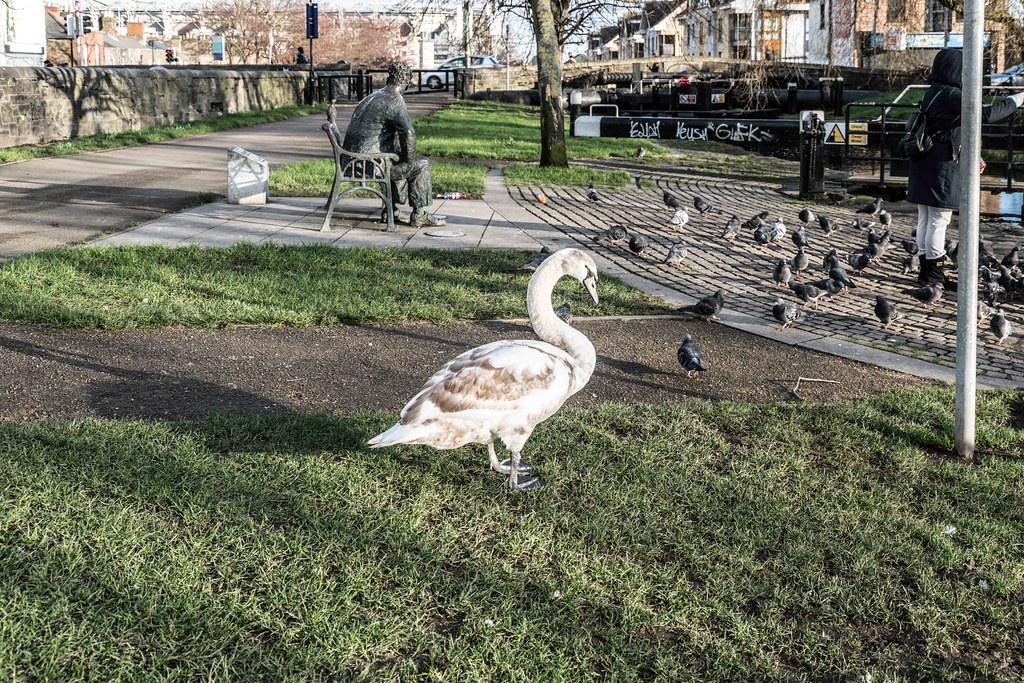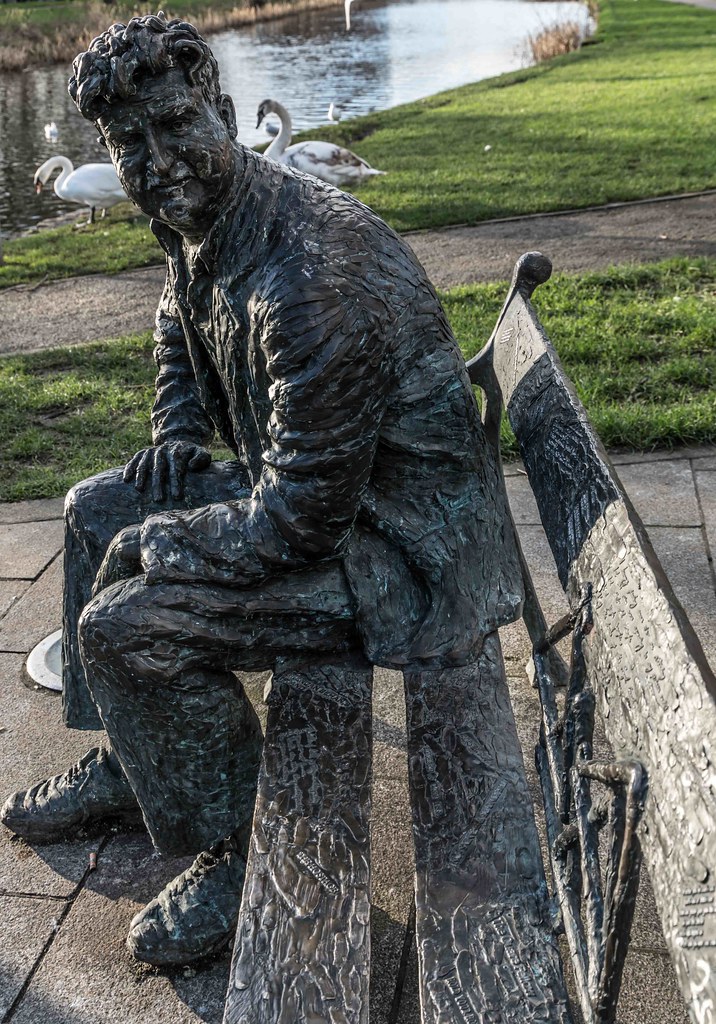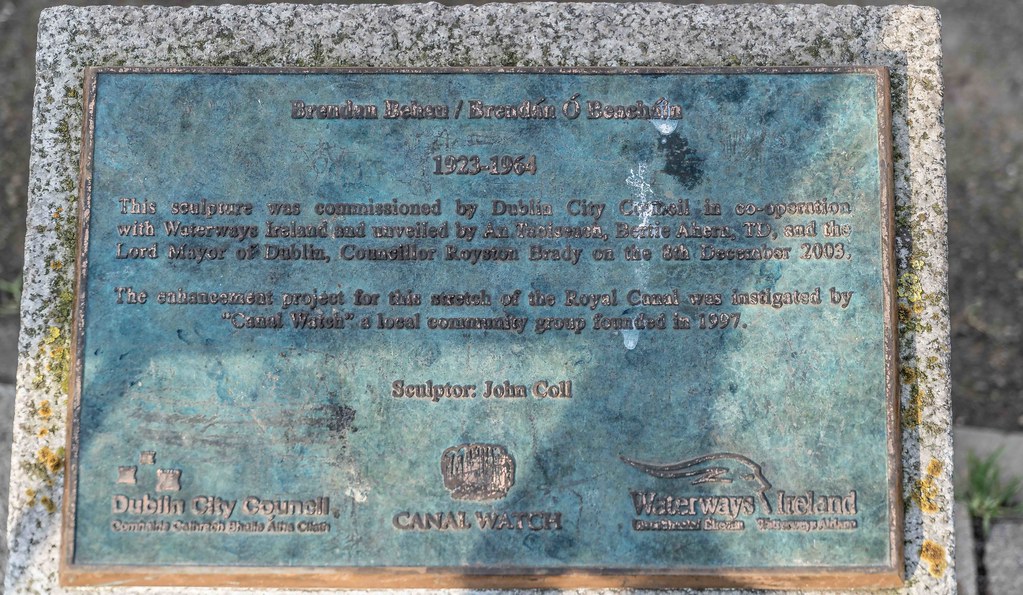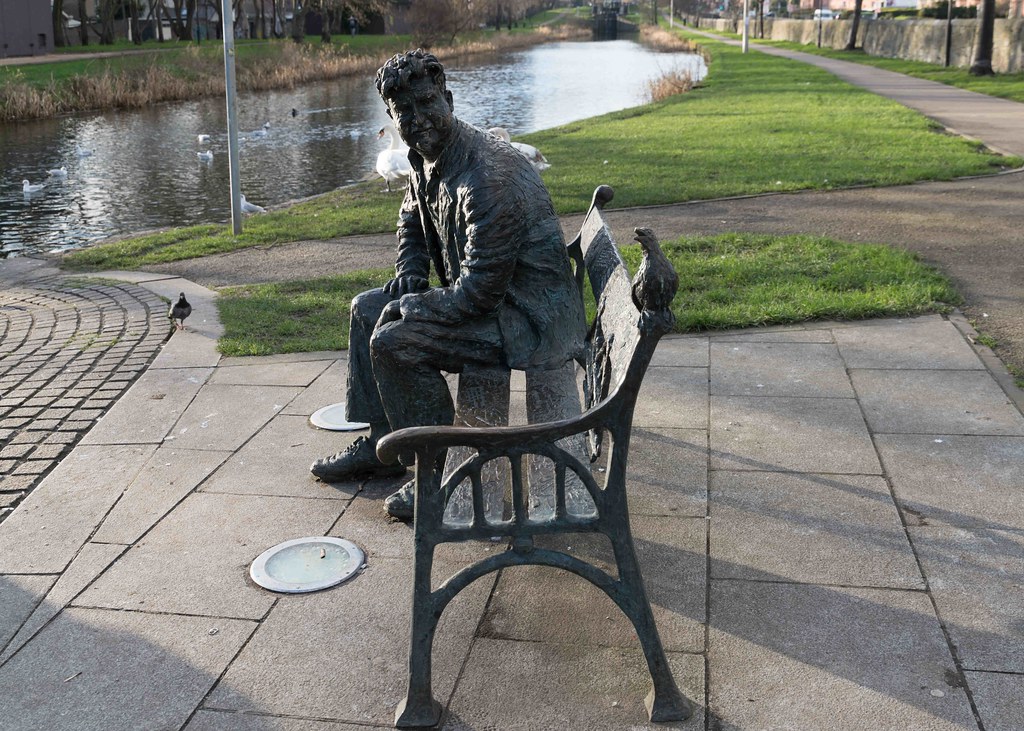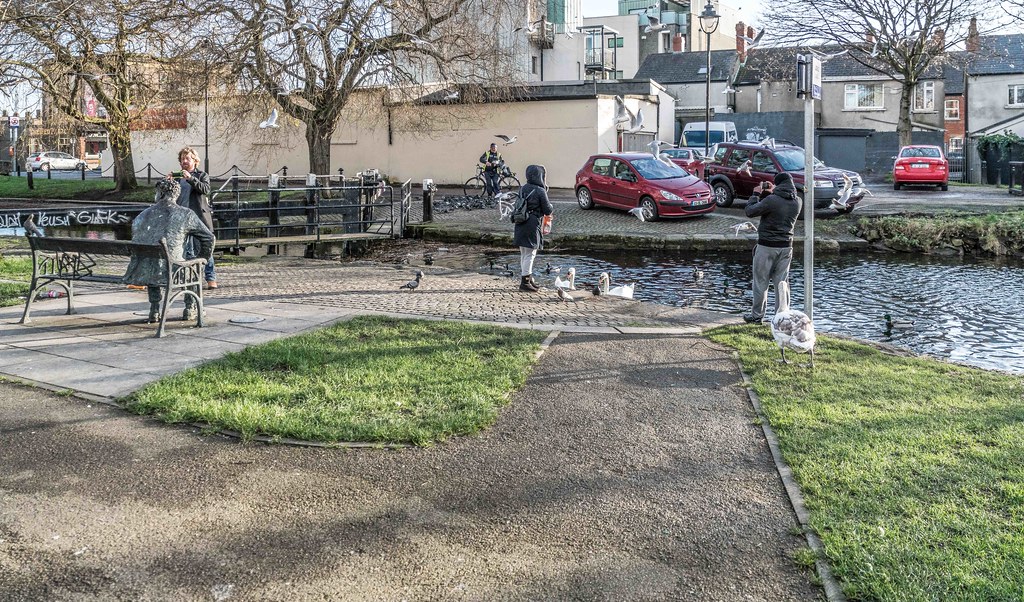REMEMBERING BRENDAN BEHAN
Brendan Behan was an Irish poet, short story writer, novelist, and playwright who wrote in both English and Irish. He is widely regarded as one of the greatest Irish writers and poets of all time. He was also an Irish republican and a volunteer in the Irish Republican Army. Born in Dublin into a republican family, he became a member of the IRA's youth organisation Fianna Éireann at the age of fourteen. However, there was also a strong emphasis on Irish history and culture in the home, which meant he was steeped in literature and patriotic ballads from an early age. Behan eventually joined the IRA at sixteen, which led to his serving time in a borstal youth prison in the United Kingdom and he was also imprisoned in Republic of Ireland. During this time, he took it upon himself to study and he became a fluent speaker of the Irish language. Subsequently released from prison as part of a general amnesty given by the Fianna Fáil government in 1946, Behan moved between homes in Dublin, Kerry and Connemara, and also resided in Paris for a time.
In 1954, Behan's first play The Quare Fellow, was produced in Dublin. It was well received; however, it was the 1956 production at Joan Littlewood's Theatre Workshop in Stratford, London, that gained Behan a wider reputation. This was helped by a famous drunken interview on BBC television. In 1958, Behan's play in the Irish language An Giall had its debut at Dublin's Damer Theatre. Later, The Hostage, Behan's English-language adaptation of An Giall, met with great success internationally. Behan's autobiographical novel, Borstal Boy, was published the same year and became a worldwide best-seller.
He married Beatrice Ffrench-Salkeld in 1955. Behan was known for his drinking problem, which resulted in his suffering from diabetes, which ultimately resulted in his death on 20 March 1964. He was given an IRA guard of honour, which escorted his coffin. It was described by several newspapers as the biggest funeral since those of Michael Collins and Charles Stewart Parnell.
In 1954, Behan's first play The Quare Fellow, was produced in Dublin. It was well received; however, it was the 1956 production at Joan Littlewood's Theatre Workshop in Stratford, London, that gained Behan a wider reputation. This was helped by a famous drunken interview on BBC television. In 1958, Behan's play in the Irish language An Giall had its debut at Dublin's Damer Theatre. Later, The Hostage, Behan's English-language adaptation of An Giall, met with great success internationally. Behan's autobiographical novel, Borstal Boy, was published the same year and became a worldwide best-seller.
He married Beatrice Ffrench-Salkeld in 1955. Behan was known for his drinking problem, which resulted in his suffering from diabetes, which ultimately resulted in his death on 20 March 1964. He was given an IRA guard of honour, which escorted his coffin. It was described by several newspapers as the biggest funeral since those of Michael Collins and Charles Stewart Parnell.
SORRY FOR THE DELAY
You will find links to buy products from Amazon, Google and other partners. If you click on these links, you’ll find that the URL includes a small extra piece of text which identifies that the click came from my websites. This text is an affiliate code, and it means that I get a small percentage of the money you spend if you choose to buy that product, or, in some cases, other products from the site soon after. These affiliate links help pay the costs of producing my websites and ensure that the content is free to you.
COPYRIGHT INFORMATION BELOW APPLIES ONLY TO PHOTOGRAPHS

This work by William Murphy aka Infomatique is licensed under a Creative Commons Attribution-NonCommercial-ShareAlike 4.0 International License.
Permissions beyond the scope of this license may be available at https://excellentstreetimages.com/in-the-year-twentytwenty/copyright/.
